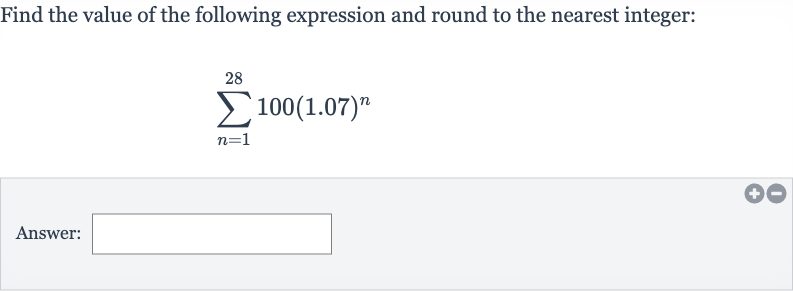Full solution
Q. Find the value of the following expression and round to the nearest integer:Answer:
- Given Geometric Series: We are given a geometric series with the first term and the common ratio . The sum of the first terms of a geometric series is given by the formula , where is the number of terms. We will use this formula to find the sum of the series from to .
- Calculate First Term: First, we calculate the first term of the series: .
- Calculate Common Ratio: Next, we calculate the common ratio , which is given as . Since it is the same for each term, we do not need to perform any additional calculations for .
- Use Sum Formula: Now, we will use the formula for the sum of the first terms of a geometric series to find the sum . Plugging in the values, we get .
- Calculate Numerator: We calculate the numerator of the formula: . Using a calculator, we find that . Therefore, the numerator becomes .
- Calculate Denominator: We calculate the denominator of the formula: .
- Divide Numerator by Denominator: Now we divide the numerator by the denominator: . This simplifies to .
- Calculate Final Sum: Multiplying by , we get .
- Round to Nearest Integer: Finally, we round the sum to the nearest integer. The sum rounds to .

